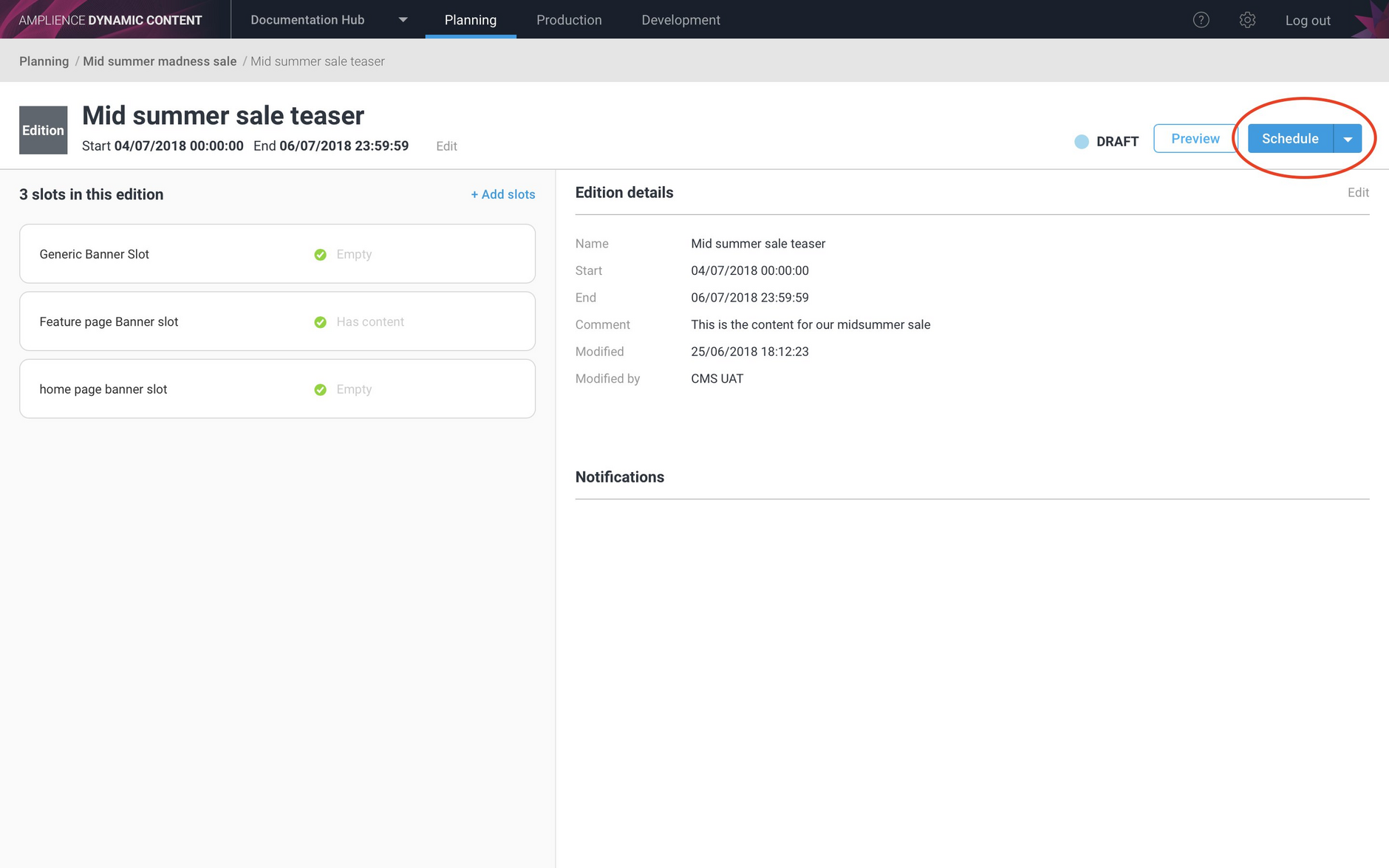Webhooks
Release Note 27th June 2018
In this release we've introduced a new webhooks service, designed to make it easier to integrate third party software such as e-commerce systems with Dynamic Content.
WebhooksLink copied!
A webhook is a way for a third party system to request to be notified when a certain action occurs in Dynamic Content. For example, an e-commerce system might need to know when an edition is scheduled to allow it to retrieve the slots and content that the edition contains. Similarly it would also need to be notified when that edition is unscheduled.
Developers create webhooks that subscribe to certain specified "webhook events" generated by Dynamic Content. These events will usually correspond to an action performed by the user. Currently the only events that Dynamic Content supports are schedule and unschedule edition, but support for further events is planned.
When a webhook is created, developers will specify:
- the events that it wants to subscribe to
- the URL that will be notified when one of these events occurs. This is referred to as the "webhook handler".
When Dynamic Content generates an event that a webhook subscribes to, it will trigger the webhook and send information to the webhook URL. This information is referred to as a "payload" and will contain information that the webhook handler will process. What the webhook code does with this information is up to the developer, but it might request further information to Dynamic Content or pass information to an e-commerce system, for example.
Webhooks are currently created and managed in Dynamic Content using an API. For more information about using webhooks to integrate your system with Dynamic Content please contact your Customer Success Manager. Lots more information about using webhooks will be included on this site soon.
ExampleLink copied!
To explain how Dynamic Content handles webhooks, we'll use an example. A webhook has been set up to be notified when the user schedules or unschedules an edition.
When the user schedules an edition:
- Dynamic Content generates a schedule edition event and notifies the webhook handler URL the developer has set for this webhook
- The webhook handler URL is notified using an HTTP POST event containing a payload.
- The payload contains the edition start and end date, its name and other information that the webhook handler will use to process the event
- The webhook handler sends back an HTTP response and then does some further processing
